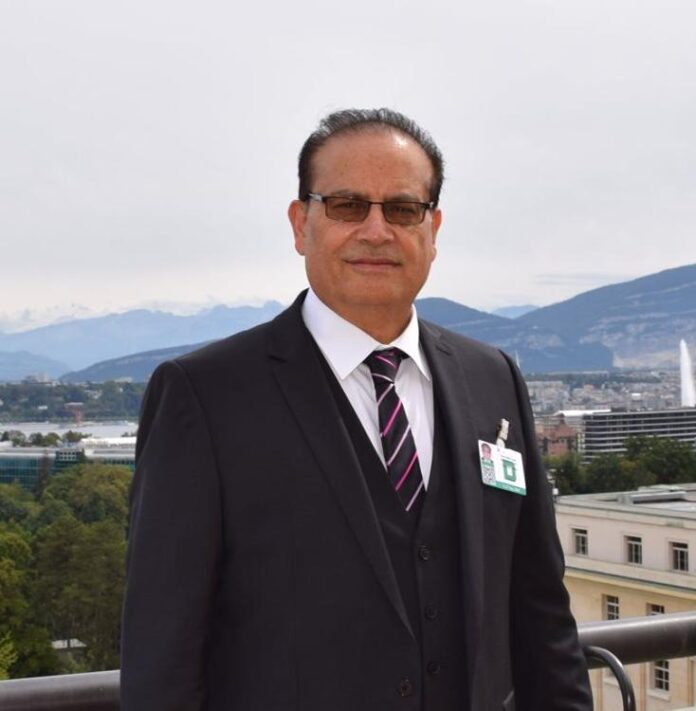By Qamar Bashir
We begin with a prayer for sound judgment and for the protection of innocent lives: May those who hold the levers of power choose restraint over rashness, and may the suffering of ordinary families be spared the thunder of renewed war.
President Trump’s recent declaration that the United States “wants [Bagram] back” — and his warning that “bad things are going to happen” if the demand is not met — is not merely a rhetorical flourish. It is a public ultimatum aimed at a sovereign state now governed by a regime that has repeatedly insisted on its independence and territorial integrity. To speak of “getting it back” without acknowledging the scale of what that implies is to invite a darkness of consequence that cannot be measured simply in dollars or troop rotations.
This urgency — presented as if the cost could be traded away for strategic advantage — deserves a sober pause. Ask plainly: why, at this perilous moment, should the United States risk lives and treasure to re-establish control over a base it abandoned amid humiliation just four years ago? The calculus offered is blunt and chilling: the perceived need is to neutralize threats before they can reach Israel, to blunt Iranian influence that allegedly “barters” through Afghan soil, and to deter Pakistan’s conventional and nuclear capabilities from shaping the outcome of conflicts in the Middle East. That rationale, if true, places Israel’s security at the center of an American sacrifice that would demand fathers, mothers, sisters and brothers be risked abroad — a moral choice that must be argued openly, not imposed as an offhand strategic fait accompli. The president’s public boast that the base “belongs to those that built it” treats sovereignty like a ledger entry rather than a lived reality; it treats bodies and futures as collateral.
We should be brutally honest about the price. Bagram is not a symbolic hangar you re-enter with a small contingent; it was the logistical heart of a two-decade campaign — runways for the largest transports, detention facilities, hospitals, administrative complexes and entire life-support systems for tens of thousands of troops. The base was vacated during the chaotic U.S. withdrawal in July 2021; the departure remains a potent symbol of the limits of force and of the human cost of occupation. Any serious attempt to retake and hold Bagram would require a force posture that looks very much like re-invasion: large troop footprints, air defenses, long-term occupation forces and an open-ended commitment to secure supply lines against insurgents and regional spoilers. History warns that such ventures rarely end on the schedules or terms imagined by their planners.
Beyond the arithmetic of troops and treasure lies a web of regional dynamics that transform a tactical objective into a geopolitical tinderbox. China has quietly deepened its engagement with Kabul — courting mining contracts, infrastructure deals and incremental Belt-and-Road integration. Pakistan claims a deep strategic interest in Afghanistan; Iran watches its western neighbour for any shift that might threaten its influence; and a resurgent Taliban now trades in a complex mix of domestic control and international overtures. An American kinetic return to Bagram would not be an isolated operation; it would be a whiplash event that could provoke asymmetric retaliation from militant actors, diplomatic pushback from regional capitals, and a strategic confrontation with Beijing over the very infrastructure China is trying to build through soft power. The result would not be merely a regional skirmish; it would be a cascade of destabilising moves with human costs that ripple across borders.
There is also a moral dimension that many in Washington seem eager to elide. If the objective of recapturing Bagram is to create a buffer for Israel — then that aim must be debated openly in Congress and with the American public. Sacrificing American lives to serve another nation’s perceived buffer-zone preferences is a weighty judgment that should not be made in a propagandistic press moment. The American people deserve the facts, the alternatives, and the hard accounting of costs in blood and treasure before such a choice is made. To present threats in cinematic soundbites while concealing the true toll is a betrayal of democratic responsibility.
There is a better, more realistic path — and it is one the United States can actually afford both morally and strategically. Influence without occupation is not naïve; it is prudent. Jobs, roads, hospitals, schools and transparent investment frameworks win long-term leverage in fragile states far more effectively than boots do. Rather than threatening to seize territory, Washington should marshal humanitarian aid, underwrite infrastructure projects with strict governance and environmental protections, fund vocational training and support rule-of-law institutions that make communities resilient to extremist sway. Where extractive industries are concerned, revenue-sharing and oversight can reduce corruption and blunt local grievances that fuel insurgency. In short: rebuild with dignity, not coerce with force. Such an approach may be slower and less theatrical, but it matches moral legitimacy with strategic durability.
We must also confront the bitter irony: if the United States is prepared to pay any price to protect another country’s security ambitions, that willingness will be visible to regional powers and will seed resentment. It will feed narratives that the U.S. acts selectively, that American lives are expendable in service of foreign agendas, and that occupation is a policy tool rather than a last resort. Those narratives will be used by opponents to rally recruits and justify asymmetric attacks that will claim the very lives Washington professes to protect.
The choice facing Washington is, disturbingly, both strategic and moral. It can choose to replay the mistakes of the recent past — thunderous ultimatums, rushed deployments, and the false promise that territory can be held without hearts and minds — and thereby invite a long, painful entanglement whose costs are incalculable in mere budgets. Or it can choose to invest in reconstruction, partnerships and patient diplomacy that respect Afghan sovereignty and build durable influence. The latter requires humility, long-term funding commitments, and a willingness to measure success by human flourishing rather than by signage at a runway.
President Trump’s rhetoric — alternately promising peace and threatening occupation — sends the wrong signal to allies and adversaries alike. Tough talk may score at home; abroad it hardens resistance, rallies rivals, and complicates the very diplomacy Washington will need if it truly seeks influence in South and Central Asia. The moral urgency here is not merely about strategy; it is about responsibility to the families who will bear the cost if the sirens call of occupation is answered.
Let us end where we began: with a prayer for restraint, for wisdom, and for leaders who place human life before spectacle. The path that leads through reconstruction, coalition-building and respect for sovereignty is harder, less glamorous and slower — but it is the path that will spare the greatest number of lives and build a legacy worth defending. If America is to remain influential in a changing region, it must learn the hard lesson of Bagram: boots can seize terrain, but they cannot buy the consent that makes security last.
By Qamar Bashir
Press Secretary to the President (Rtd)
Former Press Minister, Embassy of Pakistan to France
Former Press Attache to Malaysia
Former MD, SRBC | Macomb, Michigan, USA

















